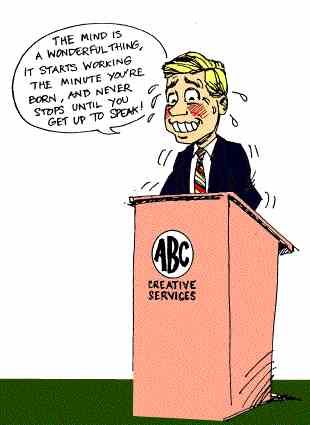Is Public Speaking Class Hard?
Public Speaking Class can be challenging for some individuals due to the requirement of speaking in front of a crowd, but with practice and guidance, it can become easier. The skill of public speaking can be developed and honed over time.
If you’ve ever wondered if public speaking class is hard, you’re in the right place! Here’s the lowdown on what to expect, whether you’re a budding or nervous speaker. Let’s dive in and explore the world of public speaking together!
So, you’re considering taking a public speaking class, huh? Well, you’re in for an exciting journey! Public speaking may seem intimidating at first, but trust me, it’s a skill that can be learned and mastered with practice. Get ready to unleash your inner orator and boost your confidence while you’re at it!
Picture this: standing in front of a crowd, delivering a captivating speech that holds everyone’s attention. Sounds cool, right? Well, that’s what public speaking class is all about! No matter how shy or outgoing you are, this class will equip you with the tools to express yourself effectively and engage your audience. Let’s embark on this exciting adventure and conquer the stage together!
Are you ready to step up and conquer your fear of public speaking? Public speaking class might just be the answer you’ve been looking for. Whether it’s for school, career, or personal growth, this class will empower you with the skills and confidence to communicate your ideas with impact. Get ready to shine and embrace the art of public speaking!
:max_bytes(150000):strip_icc()/GettyImages-7364923351-5a9471548e1b6e00371354c5.jpg)
Is Public Speaking Class Hard?
Public speaking is a skill that many people find intimidating. The thought of standing in front of a room full of people and delivering a speech can be nerve-wracking. So, it’s natural to wonder if public speaking class is hard. In this article, we will explore the challenges students may face in a public speaking class and provide insight into how to navigate them effectively.
Why Public Speaking Class Can Be Challenging?
1. Overcoming Fear and Anxiety:
Public speaking is often associated with anxiety and fear. Many students find themselves in a constant battle with stage fright. The fear of judgment, the pressure to perform well, and the vulnerability of being in the spotlight can make public speaking class feel difficult. However, through proper guidance and practice, these fears can be conquered.
2. Developing Effective Communication Skills:
Public speaking is not just about standing and talking in front of an audience. It requires the ability to articulate thoughts clearly, engage the audience, and convey ideas effectively. Developing these communication skills can be challenging for some students, especially those who are not naturally inclined towards public speaking. However, with guidance and practice, these skills can be honed.
3. Organizing and Structuring Presentations:
A well-organized and structured presentation is crucial for effective public speaking. Students may struggle with organizing their thoughts, selecting relevant information, and creating a logical flow in their presentations. Developing these skills takes time and practice, but with the right strategies and feedback, students can become proficient in structuring their presentations.
The Benefits of Overcoming the Challenges
While public speaking class may present its challenges, there are numerous benefits to be gained from pushing through and overcoming these obstacles:
- Improved self-confidence: Overcoming the fear of public speaking can boost self-confidence in various aspects of life.
- Enhanced communication skills: Public speaking skills translate to better communication skills in all areas of life.
- Career advancement: Strong public speaking skills are highly valued in the professional world and can open doors for career opportunities.
- Expanded social connections: The ability to express oneself confidently can lead to better social connections and networking opportunities.
Tips for Success in Public Speaking Class
1. Practice, practice, practice: The key to improving public speaking skills is practice. Regularly engage in opportunities to speak publicly, whether it’s in class or in other settings.
2. Seek feedback: Welcome constructive criticism and seek feedback from instructors, peers, or mentors. Their insights can help you identify areas for improvement and enhance your skills.
3. Utilize visualization techniques: Visualize yourself delivering a successful speech before stepping on stage. This can help reduce anxiety and improve confidence.
4. Embrace nervous energy: Rather than letting nerves overpower you, channel the energy into enthusiasm and passion for your subject. Use your nervous energy to fuel a dynamic delivery.
Common Misconceptions About Public Speaking
1. It’s all about being perfect: Public speaking is not about perfection. It’s about effectively conveying your message and connecting with your audience. Embrace imperfections and focus on authenticity.
2. Memorization is the key: While it’s important to be familiar with your speech, relying solely on memorization can hinder natural delivery. Aim for a balance between preparedness and adaptability.
3. Great public speakers are born, not made: Public speaking is a skill that can be learned and improved with practice. Great speakers are not necessarily born with exceptional abilities; they cultivate them over time.
Public Speaking Class vs. Real-World Public Speaking
Public speaking class provides a structured environment for learning and practicing essential skills. However, there are differences between the class setting and real-world public speaking:
| Public Speaking Class | Real-World Public Speaking |
|---|---|
| Focuses on skill development and practice | May involve high-stakes presentations with real-world consequences |
| Provides supportive feedback and guidance | Can face criticism and diverse audience responses |
| Offers a controlled environment to build confidence | Requires adaptability and quick thinking |
| Opportunity to experiment and learn from mistakes | May have limited chances for do-overs |
Common Challenges Faced in Public Speaking Class
1. Stage Fright and Performance Anxiety:
2. Lack of Confidence and Self-Doubt:
3. Difficulty Organizing Thoughts and Ideas:
4. Fear of Being Judged:
5. Nervousness in Front of a Crowd:
6. Ineffective Delivery and Body Language:
7. Time Management During Presentations:
8. Overcoming Speech Structure and Transitions:
9. Identifying and Engaging the Audience:
10. Managing Q&A Sessions:
11. Overcoming Technical Difficulties:
12. Adapting to Different Presentation Formats:
13. Dealing with Unexpected Distractions:
14. Balancing Content and Visual Aids:
15. Overcoming Monotone or Lack of Voice Variety:
16. Managing Speech Anxiety:
17. Handling Stage Props:
18. Facing Foreign Language Barriers:
19. Delivering Persuasive Speeches:
20. Working with Group Presentations:
Final Thoughts
While public speaking class can be challenging, overcoming the hurdles and developing effective public speaking skills is immensely rewarding. The journey to becoming a confident and skilled speaker takes time and practice, but with patience, determination, and proper guidance, anyone can excel in public speaking. Remember that even the most accomplished public speakers started with their fair share of challenges, but they persevered and honed their skills. Embrace the opportunities for growth, learn from each experience, and enjoy the journey of becoming an exceptional communicator.
Key Takeaways: Is Public Speaking Class Hard?
- Public speaking classes can be challenging but also rewarding.
- With practice and preparation, anyone can become a better speaker.
- It’s normal to feel nervous but remember that everyone starts somewhere.
- Public speaking skills are valuable in many areas of life.
- Joining a public speaking class can boost confidence and communication abilities.
Frequently Asked Questions
Public speaking can be an intimidating skill to master, but with practice and preparation, anyone can excel. Here are some common questions people have about public speaking classes.
Q: How can I overcome my fear of public speaking?
A: Overcoming fear in public speaking starts with understanding that it’s normal to feel nervous. One way to conquer this fear is through practice. By rehearsing your speeches and presentations, you become more comfortable with the material and gain confidence in your delivery. Additionally, joining a public speaking class can provide a supportive environment where you can gradually build up your skills.
Another powerful technique to overcome fear is to reframe your mindset. Instead of viewing public speaking as a daunting task, try seeing it as an opportunity to share your knowledge and connect with others. Remember that your audience wants you to succeed and is rooting for you.
Q: How can public speaking classes benefit me in my personal and professional life?
A: Public speaking classes offer numerous benefits that can enhance both your personal and professional life. First and foremost, they improve your communication skills. Learning to articulate your thoughts clearly and persuasively is valuable in any setting, from business meetings to social interactions.
Public speaking classes also boost your self-confidence. As you become more skilled and comfortable speaking in front of others, your self-assurance grows, which can positively impact various aspects of your life. Additionally, being an effective public speaker opens doors to leadership roles and career opportunities, as strong communication skills are highly valued in many industries.
Q: Are public speaking classes only for naturally confident people?
A: Not at all! Public speaking classes are for everyone, regardless of their natural confidence levels. In fact, many individuals who initially struggle with public speaking find that with practice and guidance, they become more comfortable and proficient in the skill.
Public speaking classes are designed to provide individuals with the tools and techniques necessary to communicate effectively, regardless of their starting point. These classes focus on building confidence, developing presentation skills, and providing constructive feedback to help individuals improve their speaking abilities.
Q: How long does it take to become a good public speaker?
A: The time it takes to become a good public speaker varies depending on the individual and their level of dedication and practice. Some people might see significant improvement in just a few months, while others may take longer.
Consistency and regular practice are key. By dedicating time to improving your speaking skills, such as through attending public speaking classes and practicing at home, you can accelerate your progress. Remember, becoming a good public speaker is a journey, and each step forward is a step closer to mastery.
Q: Can public speaking classes help me with impromptu speaking?
A: Absolutely! Public speaking classes not only teach you how to prepare and deliver prepared speeches, but they also sharpen your impromptu speaking skills. These classes often include exercises and activities that help you think on your feet and respond to unexpected questions or situations.
Through practice and guidance, you’ll learn strategies to structure your thoughts quickly and deliver coherent impromptu speeches. This skill can be immensely valuable in various scenarios, from job interviews to social gatherings, allowing you to speak confidently and effectively in the moment.
Summary
Public speaking class may seem hard at first, but with practice, it gets easier. Remember that everyone gets nervous, and mistakes are okay. Just be confident, prepare well, and believe in yourself.
Don’t worry about being perfect, focus on improving communication skills and expressing your ideas. By facing your fears and pushing yourself out of your comfort zone, you can become a great public speaker in no time.


